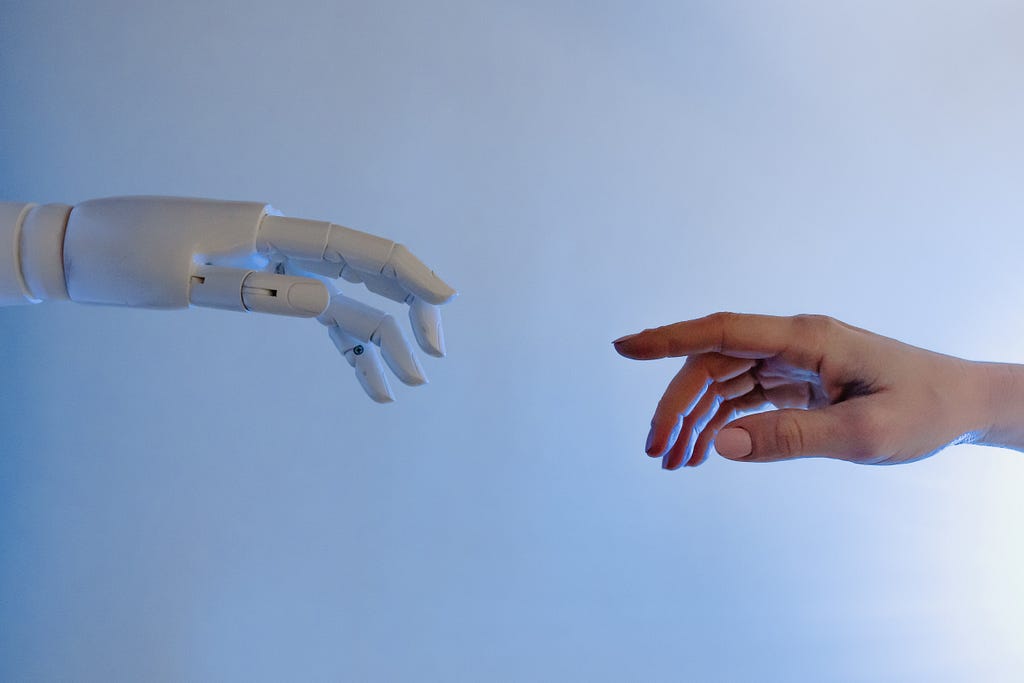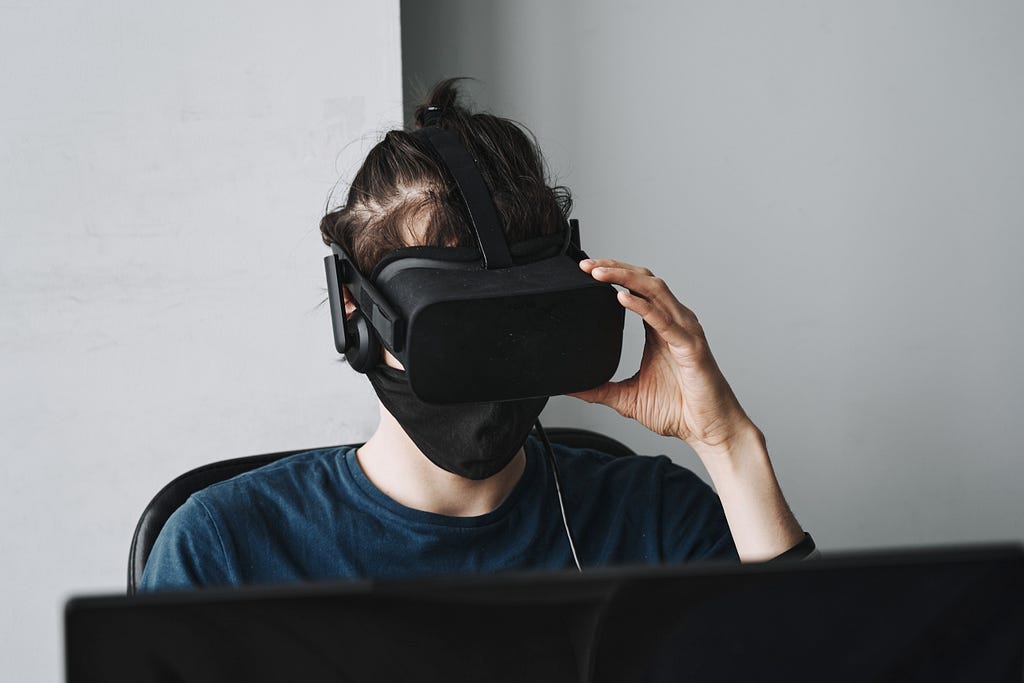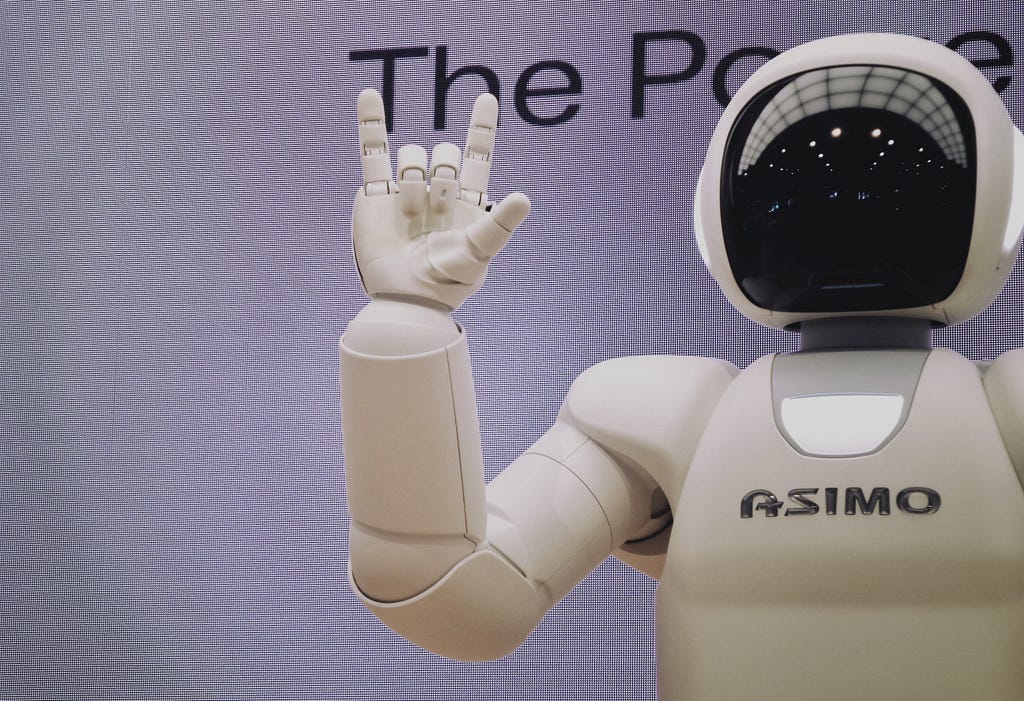
3 Under-The-Radar Sectors That Will Be Revolutionized By AI
Last Updated on October 26, 2021 by Editorial Team
Author(s): Aashish Nair
Artificial Intelligence
Explore the underrated applications of artificial intelligence that will transform our society

When it comes to hype, the tech industry has always been a go-to source. As we endure our mundane, repetitive lifestyles, we look towards the leading innovators to make our lives more fun and convenient.
Even when the technologies boasted are infeasible, they garner a lot of attention, as people love to let their imaginations loose and explore different realities in which these technologies are present.
Currently, artificial intelligence is in the spotlight, and it is not difficult to see why; it has the capacity to revolutionize every sector in the economy.
However, some technologies are simply not gaining enough traction.
People are currently eyeing the development of self-driving vehicles, the fight against online misinformation, and the strengthening of cyber security to combat ransomware.
Although these applications deserve attention, a lot of that attention stems from the hype generated by people fantasizing about new technologies and investors eagerly seeking the next big innovation.
Amid the speculation of what the rise of AI will bring, people are neglecting some of the areas that are most poised to undergo immense change during this transition.
Here are 3 sectors that are likely to be heavily impacted by AI.
1. Elderly Care

Devices powered by AI can serve to improve the standards of elderly care. With technology that can better diagnose, monitor, and treat older people, physicians will have the means to provide better care for their patients.
Cameras and sensors augmented by AI are able to closely monitor the condition of the elderly. Thanks to advancements in computer vision, cameras can identify any potential issues with a patient’s condition based on their behavior. Sensors can detect accidents such as falls so that patients can receive aid as soon as they need it.
Furthermore, devices that allow elders to perform self-diagnosis are already in production. For instance, the Apple Watch Series 4 utilizes AI to provide ECGs and Atrial fibrillation detection.
In addition, the elderly can now be provided with chatbots and virtual assistants that will serve them at all times. These microservices will not only ensure that the patients follow their prescribed routines, but also allow them to engage in social interaction.
Why This Matters
The elderly rarely get associated with headline-grabbing news and it’s easy to understand why; they are the demographic with the least glamour. From an economic standpoint, this group of people consumes resources without making contributions to production, so they rarely receive much attention from media outlets.
Nonetheless, the elderly make up a large portion of the population. The prominence of the elderly will only become more apparent with time, given the gradual rise in life expectancy and the steady decline in the birth rate. In fact, it is estimated that the elderly will make up 20% of the US population by 2030. Similar trends can be seen in global superpowers like China and Korea.
With a gradually aging population, governments will now have to figure out how they are going to support a larger population of older people with a smaller labor force.
The current system of elderly care is already inadequate. The limited number of caregivers prevents each and every elder from receiving sufficient attention. Furthermore, those that take care of the elderly often work long hours and receive a meager salary. With these prospects, it is very likely that the issues faced in the elderly care industry will only be exacerbated with time.
For that reason, catering to the elderly will become a leading challenge for future generations.
AI will no doubt play a pivotal role in providing the means to accommodate the aging population.
Thus, it is essential to understand the AI applications that can facilitate the transition to better elderly care and learn to implement them effectively.
2. Gaming

The gaming culture has fully been embedded into our society. From mobile apps to gaming consoles, there are a plethora of ways for people of all ages to explore the world of video games.
This trend will only continue with the introduction of AI and its ability to enhance the gaming experience. With richer visualization graphics and more realistic gaming interactions, the games of the future could not look more enticing.
Our grasp of artificial intelligence has improved by leaps and bounds. Developers are now able to explore new avenues for their games because of the advent of a technique called reinforcement learning.
Simply put, gameplay can now be customized for users based on their own behavioral data. Different players will be able to enjoy different experiences from the same game.
The use of non-playable characters (NPCs) will also make considerable advancements. Instead of following a mundane script, NPCs can be trained to speak or make decisions based on the user’s data. Instead of dealing with mindless bots, users will get to experience interactions that strongly resemble those between humans.
These additions will add an element of realism and deliver a much more rousing experience for casual and avid gamers. The popularity of gaming is bound to continue its surge.
Why This Matters

The best thing about gaming is also the worst; it is immersive.
As someone who has enjoyed video games since childhood, seeing video game industries keep up with the times is certainly gratifying.
Unfortunately, although favorability towards gaming has remained strong, the safeguards against it have not.
Let’s face it; video games are addictive.
Gaming addiction has long been acknowledged by medical experts as a legitimate condition. People that game excessively have been shown to neglect their physical and mental wellbeing, abandon their education and career prospects, and limit their interactions with friends and family.
These problems could be deterred if there was a barrier of entry for gaming. Unfortunately, with the advent of smartphones, computers, and gaming consoles, even toddlers can easily obtain access to video games.
The economic superpowers are now considering establishing rules to restrict gaming privileges for all users, endangering the entire video game industry. China has already taken the initiative to place a ban on gaming for minors, only allowing them 3 hours of gaming a week.
The rise of AI no doubt offers a lot to the future generation of video games. However, with this transition, we must also consider the potential ramifications of these technologies and account for them, lest they do more harm than good.
Policing

For decades, police have received a never-ending barrage of criticism from the public due to their mistakes and oversights when carrying out their duties.
It goes without saying; police condemnation persists worldwide.
A likely reason for their underwhelming performances is that their primary technology for fighting crime is obsolete.
However, with the increased reliance on data-driven decision-making, policing investigations can achieve optimal results while minimizing costs and accidents.
Machine learning algorithms can now be trained by historical data to identify potential culprits or victims of crime. They can also be used to detect “hot spots”, allowing police to better prepare for any ominous events.
This is akin to putting out a fire before it even starts.
Moreover, tools like facial recognition can ensure that culprits behind crimes like robberies and shootings are quickly identified and prosecuted. Cases can be closed swiftly while ensuring that fewer innocent people are indicted and incarcerated for crimes they did not commit.
Why This Matters

If AI provides the means to deliver more satisfactory results, law enforcement can slowly consolidate their reputation and mend the broken relationship between the police and the public.
However, while the potential gains from incorporating AI into police work are considerable, the drawbacks are just as noteworthy.
Algorithms, while free from human bias, are still trained from historical data. Thus, there is a likely chance of models making the same biased predictions that earned police departments their poor reputations.
For example, law enforcement agencies in countries like the US, England, and France have a strong reputation of racial profiling. Numerous studies highlight a disproportionate amount of black people being subject to hostile treatment.
If the police in such countries start training their models with data biased against people of color, how can we expect the models to perform differently?
If anything, the use of such models would perpetuate persisting racial injustice. The police will be able to use their predictive models as “evidence” to justify their belligerent behavior.
The emergence of AI can prove to be a turning point for how we view police work as a society. Long-standing problems that have plagued law enforcement can finally be resolved. However, without sufficient oversight, there is also a chance that these new technologies will be wasted or misused.
Conclusion

People today look at emerging technologies with the same temperament as children looking at new toys after getting bored of the old ones.
While it is understandable to gravitate towards innovation that is most entertaining or lucrative, it does not justify ignoring the technology that stands to change the very foundations of our society.
AI applications will impact nearly every industry, so it is essential to pay attention to the ones that make the biggest impact as opposed to the ones that are the most amusing.
History has proven time and again that being negligent and complacent in the face of new technologies will only invite trouble.
3 Under-The-Radar Sectors That Will Be Revolutionized By AI was originally published in Towards AI on Medium, where people are continuing the conversation by highlighting and responding to this story.
Published via Towards AI
Take our 90+ lesson From Beginner to Advanced LLM Developer Certification: From choosing a project to deploying a working product this is the most comprehensive and practical LLM course out there!
Towards AI has published Building LLMs for Production—our 470+ page guide to mastering LLMs with practical projects and expert insights!

Discover Your Dream AI Career at Towards AI Jobs
Towards AI has built a jobs board tailored specifically to Machine Learning and Data Science Jobs and Skills. Our software searches for live AI jobs each hour, labels and categorises them and makes them easily searchable. Explore over 40,000 live jobs today with Towards AI Jobs!
Note: Content contains the views of the contributing authors and not Towards AI.














